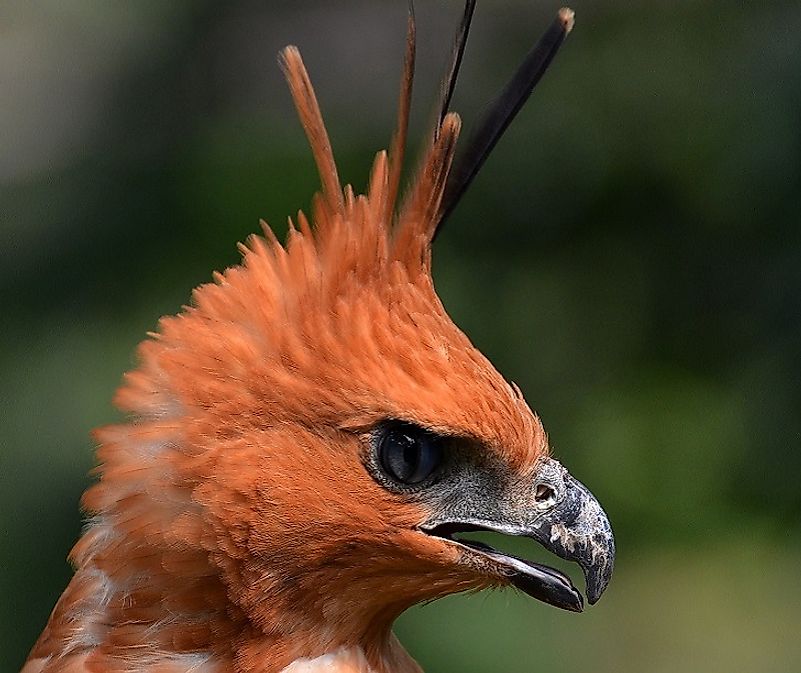Could The Illegal Pet Trade Drive Many Of Indonesia's Birds To Extinction?

5. Overview of the Crisis
Indonesia hosts an incredible diversity of avian fauna with over 1,600 species of birds, many of them threatened, residing in the country. Indonesians have been known to have a tradition of keeping birds as pets in their homes and many homes in the country can be observed to have a bird cage or cages with birds in them. However, the skyrocketing demand for birds as pets in Indonesia have heavily decimated their numbers in the wild. Today, 13 species of birds and 14 more subspecies are on the edge of extinction because of the illegal pet trade prevailing in the country, and situations are only expected to worsen without the implementation of immediate corrective measures.
4. Species Most at Risk
Indonesia’s national bird, the Javan hawk eagle, is at the greatest risk of extinction. With only 300 to 400 individuals of this species remaining, the birds have been classified as endangered by the International Union for the Conservation of Nature (IUCN). As per estimates, the number of these birds being born each year is equal to the number of birds being removed from the wild by the illegal pet traders. The songbirds of Indonesia, famous for their melodious voices, are also the prime targets of the illegal trade. These birds are kept as pets in homes as well as used in Javan bird singing competitions. Birds like Javan mynas, zebra doves, scarlet-breasted lorikeet, silvery wood-pigeon, greater green leafbirds, and Sumatran laughing thrushes are some of other birds threatened by the illegal pet trade. Some birds like the black-naped oriole, are kept as good luck charms in Indonesian homes. Besides these birds, the helmeted hornbills are also heavily threatened in the country where they are captured and killed for a much sinister reason, the extraction of the solid wedge on their forehead as red ivory for creating luxury goods and ornaments.
3. Where Are These Birds Being Sold To?
The illegal bird markets in Indonesia sell thousands of birds, cramped in tiny cages in open marketplaces where they are sold to buyers coming from within the country itself as well as from other parts of South and Southeast Asia and Africa. The greatest demand for these birds is, however, from within the country itself, where keeping birds as pets is an age-old tradition and a status symbol for many. As many as one-third of all households in some of the biggest Indonesian cities keep birds as pets.
2. Role of Organized Crime
In Indonesia, the illegal pet trade is part of an organized bird trafficking crime network. Sale of birds like scarlet macaws can earn the traders as much as $4,200. Capturing these birds is a low-risk procedure and transferring these birds is also not a big deal for these criminals. Hence, the bird trafficking continues unabated in Indonesia. In 2014, 151 birds were stolen from the Chikanaga Wildlife Center, belonging to the critically endangered species of black-winged mynas. Such incidents are believed to be a part of an organized crime network in the country.
1. What Is Being Done to End the Calamity?
There is no dearth of laws in Indonesia to restrict the spread of illegal wildlife trade. In the country, it is illegal to trap birds and also transport them without permits from the government. However, the poor implementation of these laws is being held responsible for the thriving illegal pet market in the country. As per reports, most of the sellers at the pet bird markets lack legal paperwork or permits of any form. Besides capture for the pet trade, many birds are also losing their habitat at a rapid pace as logging in Indonesian forests and the clearance of forests for palm oil plantations is driving out these birds from their homes. As evident, a lot needs to be done to save the birds of Indonesia. The government of the country and the leading wildlife trade monitoring network, TRAFFIC, is working hard to strictly monitor the illegal bird trade and find ways stop it.











